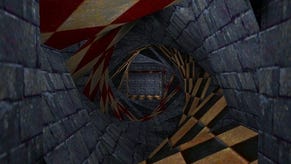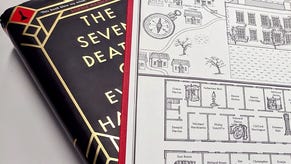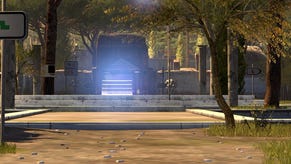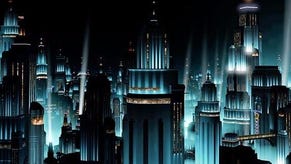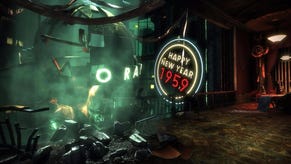BioShock 2
Put a shock in it.
The studio's gift for disquieting juxtaposition helps, too: any game that shoves you into a blood-soaked street fight against waves of women in pearls and sensible calf-length skirts while "How Much is that Doggy in the Window?" plays in the background must be doing something right.
New areas are as promising as the new tools you'll get as you explore them. I'll be brief here as, more than with almost any other game, environment and narrative dovetail so closely in BioShock that revealing too much of the former is almost certainly spoiling the latter. Suffice to say that, fairly early on in the game, you'll spend a charming half hour or so hunting through Pauper's Drop, the world's most unpleasant hotel - and I'm taking into account the Travel Lodge near Stansted airport when I say that.
It's a rough sprawl of crumbling hallways and miserable bedrooms with sharks flitting by outside and reminds you, in case you were in any danger of forgetting, how much can be gained by a skilful blending of the domestic and the other-worldly. You'll be exploring the hotel with an angry voice in your ear, too: the voice of an elderly woman hell-bent on telling everyone what an awful person you are. Before you leave, you'll have the chance to prove her right, should you wish to do so.
BioShock 2's not short on angry, even evangelical, voices, actually, the warring radio messages of Atlas and Ryan replaced, at least in the opening hours, with those of the first game's Dr. Tenenbaum and new antagonist Sophia Lamb. Tenenbaum's presence is unexplained as yet, but Lamb's far more openly complex - a messianic mother figure with a serious following. Graffiti left by her acolytes tends to have a distinctly spiritual bent, and Pauper's Drop kicks off with you stumbling into what looks quite like some manner of grim religious ceremony. If the first BioShock concerned itself with the dangers of the self, the sequel may well be turning its attention to the prickly allure of other realms entirely.
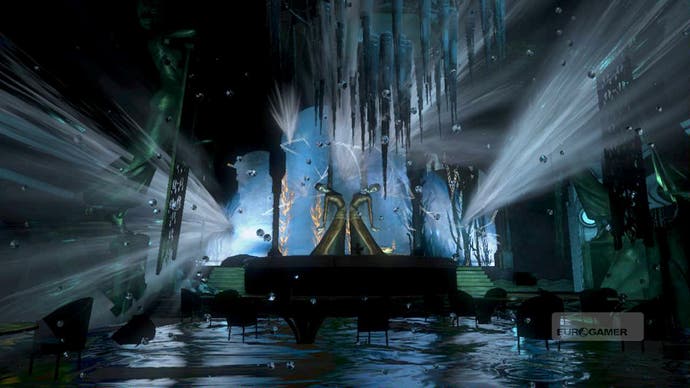
Whatever dark treats Lamb and Tenenbaum ultimately have in store, BioShock 2's narrative quickly becomes a compulsive delight. As with the first game, however, the minute-to-minute agenda is slightly less engaging. Life in Rapture, even for a Big Daddy, is still often a case of "go there, find that, and bring it back", with the game's opening hours hinging on your gradual journey across the city by means of a train, with regular stops at various stations along the way as you clear track blockages via the medium of controlled exploration and fetch-quest.
That's more than enough to keep you playing, of course - and it's hardly that different from most other games' agendas - but because BioShock tends to bring such weighty thematic ambitions with it, you can't help but hope for game mechanics and structures that equal them. You're the first Big Daddy, the man who defines this world and - some would say - kicked off its slow corrosion. It's a little bit odd that, for the opening sequences at least, you're mostly dealing with the wrong kind of snow.
That said, there aren't many developers who would risk such enormous budgets and employ such obvious expertise on a fairly downbeat tale in which ritualistic child abuse plays such a central role, so it's hard to begrudge the designers a less than entirely inspired first act. Train tracks aside, BioShock 2 is looking thoughtful, moody, elegant and smart. The first few hours almost certainly have what it takes to meet your expectations; only the rest of game can tell whether 2K Marin will be able to subvert them, too.
BioShock 2 is due out for PC, PS3 and Xbox 360 on 9th February.


